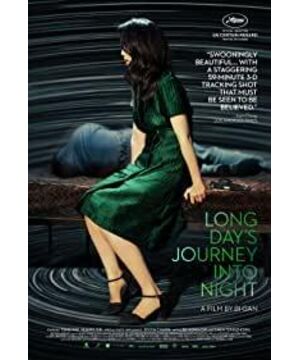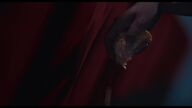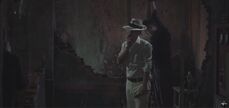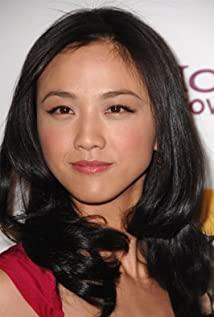Here, I put aside external factors such as marketing, market, audience, etc., I only talk about the film itself. Mainly the following aspects:
Poor lines. When I watched it, I felt that 40% of the lines could be deleted directly, and 80% of the lines wanted to be changed. Dialogue is a technical problem that is particularly difficult to deal with in novels, plays, and movies, but in reality, it is a matter of setting.
I saw some people say that the lines here are like Wong Kar-wai, but Wong Kar-wai’s approach is all prose, so his movie lines are more like a style with a clear style, while Bi Gan’s lines are not. He is in prose/poetic language and characters I'm completely lost between the dialogues. I can neither achieve thorough lyricism nor realistic daily life. There are only two possible approaches: either put the characters under the atmosphere and logic of the language, or put the language under the identity and spirit of the characters, there is no middle ground.
For example, at the beginning Luo Hongwu woke up in bed and talked with a woman. Before the woman asked who the person he dreamed was, Luo Hongwu himself said "I don't understand her past" (to the effect) and so on. This is out of touch. There is no mechanism to promote this dialogue. Luo Hongwu's setting is a person who is attracted by "dangerous things" (to the effect). Such a person generally only speaks passively, not actively ( He also mentioned that a woman shouldn’t turn his bag), the dialogue is the alternate stimulus of both languages and situations. The scene here is equivalent to the “direct quotation” in the novel. The language here is different from the narration in the movie. Jiang failed to control his measure. For another example, in the section of the hotel owner, Luo Hongwu asked if the child was born with Wan Qiwen. He did not answer directly. Instead, he went around and described his confusion about Wan Qiwen's words. This is very unreliable. This statement is made by the director. Needs, not the needs of the hotel owner. Even if he wants to express his meaning, he is unlikely to use such a roundabout way. It is more likely to answer directly, because this is a direct quotation, not a narration. The narration allows background and The continuous accumulation of information, two dialogues are not allowed, it is the time, inevitable, short-lived, and effective. Similar examples are everywhere, showing a basic problem: these people do not speak according to their identities, but according to the director's improper pursuit of clues, information output, and poetic language.
Long shots are not necessary. The forty-minute long shot in "Roadside Picnic" once fascinated me because it has a strong sense of existence. Many times when the lens is moved to the next scene, the routine of the picture should become intermittent. It is still continuous, which makes me feel shocked, because this lens is constantly reminding me of its existence, and it does not appear as a "dream", but in the name of reality, it has exceeded reality in the name of reality (Not surreal), this creates a great tension, which is impressive. But in "Earth", no. First of all, this long lens does not show a strong sense of existence. Many times I forget that it is a long lens. In that case, why bother to this method? What's worse is that the identity of dreamland dwarfs this shot. Because of the complexity and bizarreness of the dream and the multi-dimensional logic, the form itself is more tense than a long shot, and the dream itself is not continuous. The continuity is contrary to the logic of the dream. The time and space of dreams are hyperspace, long shots. Let it become like a kite bound by a string, it can't fly as high as it should be. Then, this lens is unnecessary except for dazzling skills and personal preferences.
Then let's talk about the problem of dreams. The film’s presentation of dreams is a failure, and its sense of dreams is not as good as the dreamy feeling formed by the tension of "Roadside Picnic". The tension of the entire movie "Mulholland" is built on the logical tension of dreams. This is the most realistic reference to dreams in the movie I know, and "Earth" makes me feel that Bi Gan doesn't understand dreaming at all. What it feels like. For example, the most obvious state of dreams is the constant confusion and jumping of the subject of perspective. That is to say, for example, when you face a cat, it was originally a thing in front of you, but the next moment, you may Just see what the cat's eyes see. The subject in the dream is always rotating, but it is unified under the first-person perspective as a whole. For another example, the scale of time and space in dreams is very jumpy. The small figure drilled out of the blue cube in "Mulholland Road" is small in the physical space and logic, but large in the protagonist’s perception space. This variation is The expression in the movie is very vivid, so that scene is creepy and dreamy. However, in the whole dream of "Earth", there is hardly any place that jumps out of the perspective of the subject and beyond the limits of time and space. The spatial setting set in pursuit of the continuity of the long lens is too rigid and too narrow. Therefore, I would like to make a suggestion to Bi Gan. How about using a long lens in the first half, or giving up the long lens in the second half at the same time. Maybe the final effect is much better. Of course, if he is really a director who does not understand the logic of dreams, then there is no way to discuss it.
Another problem with dreams is that dreams do not mean that they cannot be used as a mirror of narrative, but if its whole is just a mirror, it would be inappropriate. Because such a dream is not convincing. Metaphorically speaking, a dream should be more of a lake with a reflection effect. In addition to the reflected information, it also has its own depth and the unknown jungle around it. If you lose this deepness and mystery, your dream is no longer a dream. The dream of "Earth" is too specific in this respect, and there is no redundant information, so it appears so crafty and deliberate that it is hard to believe.
About poetry. Bi Gan does not know how to write poetry, but his film images do not lack the breeding space and climate for poetry. He is a director with a poetic feel. This is the biggest difference between him and Tarkovsky. Possibly, and in the future, it is almost impossible to produce the poetic reasons for Tarkovsky's films. Therefore, when Bi Gan restrained this time, but still did not give up putting his poems in the movie as the title, this movie was out of control for him: he thought that the place where poetry could be placed was The places that are not poetic, he has no intention of organizing them, are full of poetry. There is also a problem to distinguish here, poetry is not equal to poetry. Movies don’t need poetry (poems), only poetry is enough. He should abandon the concrete things like poems more thoroughly, and re-experience how images, as concrete materials, are poetic, this concrete and literal. The abstract poetry is not the same thing.
However, even if there are so many disadvantages, I still recommend this movie, because at least it is a movie that allows us to discuss these issues, and the other movies in the theater, almost except for industrial manufacturing stories and There is no discussion value other than cheap touch and cheap excitement. Therefore, although "Earth" is not well done, it has done things that other movies have not done. This is its only and important benefit.
View more about Long Day's Journey Into Night reviews










